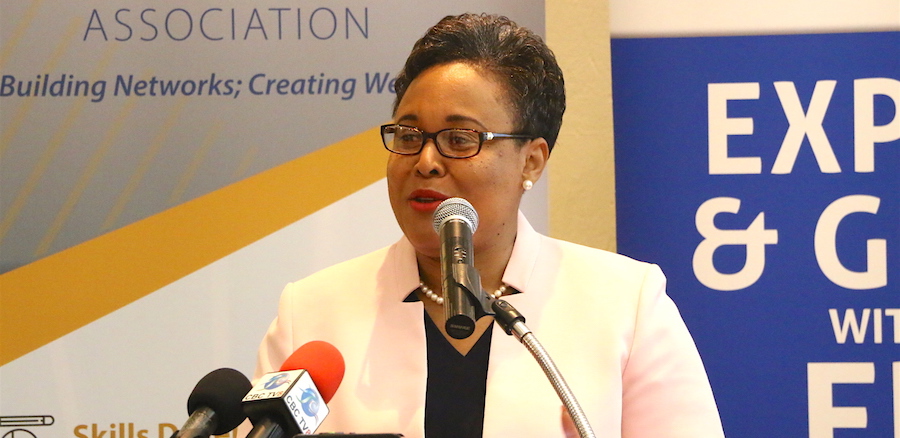by Marlon Madden
As Barbadians continue to witness an increase in the cost of living as a result of the rising cost of doing business associated mainly with external factors, officials are calling for frank discussion on the issue of local manufacturing to help curtail the problem.
While agreeing that there was a need for a more vibrant local manufacturing sector, Chief Executive Officer of the Small Business Association (SBA) Senator Dr Lynette Holder is of the view that conversations should surround the use of more local items in the manufacturing of goods.
At the same time, she is suggesting that there is a need to for higher tariffs on some important items and other incentives to promote greater use of local inputs to help make Barbados-produced items more competitive.
“So, whereas I agree that having a vibrant local manufacturing sector is key, that is another conversation that needs to happen as to how can we really incentivize local manufacturers to use local inputs. That is the issue – it is the inputs in the production process. You need to be able to use as much as possible local inputs in order to bring the cost down,” said Holder.
Over the past several months, local and regional business officials have been complaining about major rise in the cost of doing business, primarily tied to supply chain disruptions and massive increases in shipping costs.
The situation has been compounded by the rising cost of fuel, which is now hovering around US$80 per barrel, an almost US$20 increase when compared to the first quarter of the year.
Holder told Today’s BUSINESS that in order for local manufacturing to thrive and Barbadians have access to more affordable items, then the inputs in the manufacturing process would have to be produced locally and the tariffs on imported items reviewed.
“We have a problem with the tariff because you can get imported water landed here and sold on our shelves far cheaper than the local water, for example. So, while I understand about encouraging and incentivizing locally manufactured goods, I agree, but the incentivising of it is the challenge,” said Holder.
“It is too expensive, in too many instances to produce the local goods and the imported goods are actually cheaper in many circumstances when they hit the shelves than the local items,” she explained.
Recently, General Manager of the Barbados Bottling Company Ltd. (BBC) Andre Thomas said the current supply chain disruption and resulting increases in commodity prices have highlighted the importance of the local manufacturing sector.
“This is a good example of why local manufacturing is critical. Imagine if we don’t control any of those resources and we just have to rely on somebody from somewhere else manufacturing things and we are just importing them,” he pointed out.
“This is the reason local manufacturing is critical. It is necessary for Government to really put policies in place to not only preserve and encourage, but also help local manufacturing to grow and prosper,” said Thomas. The BBC is among local companies that have increased prices this year, citing the increase in freight charges and overall rise in operational costs.
Holder insisted that in order to reposition the manufacturing sector and to get it to be more viable, a range of other issues had to be carefully examined including labour costs and the cost of utility. She argued that it was only if companies were able to get their input costs down to a certain level then they would be able to provide cheaper produced local items.
“It is a conversation that really needs to happen to get manufacturing viable again. And we need to be honest with ourselves, if we want to have manufacturing vibrant again, we have to have that conversation – it is too easy for imported goods to land here and to be sold on our supermarket shelves much cheaper than the locally produced goods,” said Holder.
marlonmadden@barbadostoday.bb




